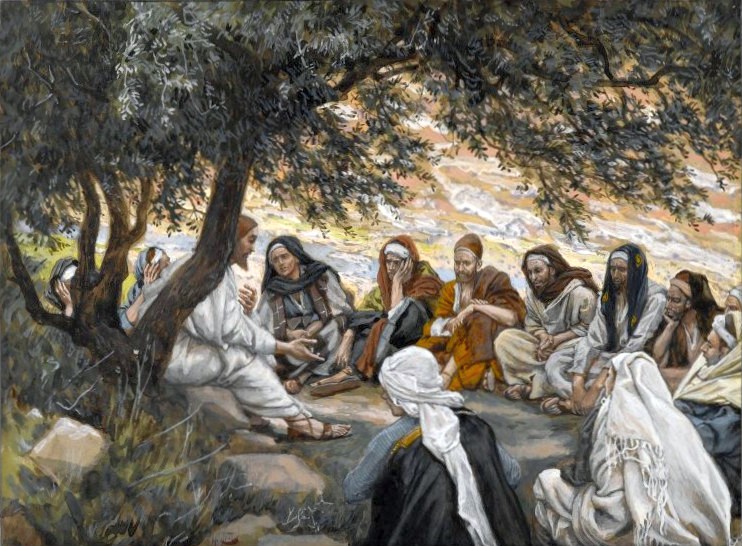
Jesus Christ – True God and True Man
by Fr. Tony Okolo C.S.Sp., V.F. | 10/05/2025 | Weekly ReflectionBeloved Parishioners,
Today in this forum my intention is to touch on one of the doctrines of our faith, Jesus Christ true God, and true man. In the Nicene-Constantinopolitan Creed, which we profess at Mass, there is a section on the Son that I want us to meditatively reflect on and it reads:
“I believe in one Lord Jesus Christ, the Only Begotten Son of God, born of the Father before all ages. God from God, Light from Light, true God from true God, begotten, not made, consubstantial with the Father; through him all things were made. For us men and for our salvation he came down from heaven, and by the Holy Spirit was incarnate of the Virgin Mary and became man.”
Whenever we profess this, we affirm that Jesus is both fully divine (“true God from true God”) and fully human (“became man”). This fullness of divinity and humanity comes together in one singular event, the Incarnation.
The mystery of the Incarnation lies at the very heart of Christianity. The Catechism of the Catholic Church (CCC 464) teaches: “The unique and altogether singular event of the Incarnation of the Son of God does not mean that Jesus Christ is partly God and partly man, nor does it imply that He is the result of a confused mixture of the divine and the human. He became truly man while remaining truly God.” This central belief— that Jesus is both fully divine and fully human— distinguishes Christianity and anchors our hope. Scripture proclaims this truth with striking clarity. John writes: “And the Word became flesh and dwelt among us” (John 1:14). The eternal Logos, who “was with God and was God” (John 1:1), chose to enter fully into our human story.
Yet, the Church did not arrive at this understanding without struggle. Early heresies distorted the mystery of Christ. Docetism claimed that Jesus only seemed human, denying His real flesh and suffering. Arianism argued that Jesus was a creature—greater than humans, but less than God. Nestorianism divided Christ into two persons, one divine and one human. Monophysitism collapsed His divinity and humanity into a single confused nature. In response, the Church, guided by the Holy Spirit, clarified the truth at the Councils of Nicaea (325), Constantinople (381), Ephesus (431), and Chalcedon (451). The Chalcedonian definition remains foundational: Jesus Christ is “one Person in two natures, without confusion, change, division, or separation.” The Catechism (CCC 465–478) summarizes this: Jesus is consubstantial with the Father in His divinity, consubstantial with us in His humanity, like us in all things but sin.
Why does this matter? Because the Incarnation is not an abstract puzzle—it is the center of our salvation. If Jesus were not truly God, He could not save us. If He were not truly man, He could not represent us. As Saint Athanasius taught, “What has not been assumed has not been redeemed.” In Jesus, God comes close—Emmanuel, “God with us” (Matthew 1:23). He knows the fatigue of labor, the ache of sorrow, the sting of rejection, and even the silence of death. Because He is truly human, He shares our struggles. Because He is truly divine, He brings healing, forgiveness, and eternal life.
This doctrine carries deep pastoral meaning. When you are tired, remember Christ who sat weary at the well (John 4:6). When you grieve, recall Jesus weeping at Lazarus’ tomb (John 11:35). When you suffer injustice, think of the One mocked and condemned though innocent. When you feel abandoned, remember that Jesus cried out, “My God, my God, why have you forsaken me?” (Matthew 27:46). His humanity is not a disguise—it is God entering fully into our lives. And because He is divine, He transforms human weakness into the pathway of resurrection.
The mystery of Christ as True God and True Man is at once the foundation of our hope, the assurance of God’s love, and the model for our discipleship. The Catechism (CCC 478) reminds us that the Sacred Heart of Jesus symbolizes that divine-human love which embraces us all. Let us therefore hold fast to the mystery of the Incarnation: Jesus, fully God and fully man, Emmanuel—God with us. In Him, heaven and earth meet; in Him, our struggles are redeemed; and in Him, our destiny is secure.
BACK TO LIST